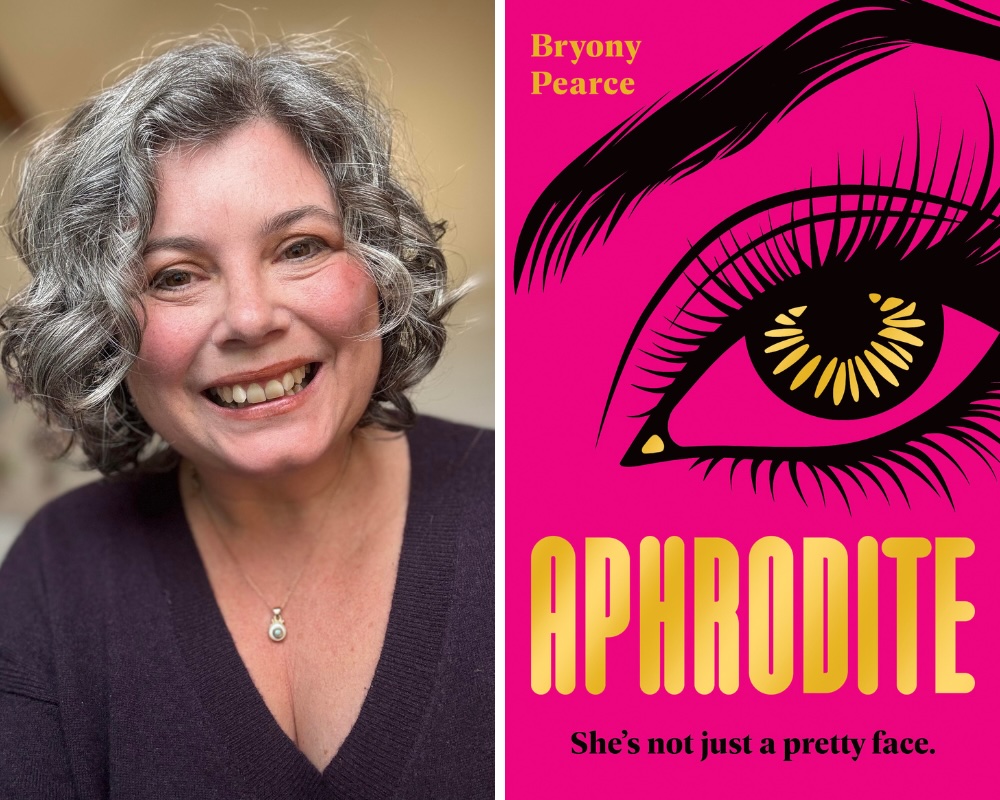Bryony Pearce: Why do we love myth?

Myths are tales presented as factual accounts, which focus on gods and goddesses and / or heroes and heroines and Greek mythology is perhaps the most well-known to modern Western audiences.
You might think that in our technologically advanced and increasingly secular world, where we play video games, work in offices, get our food from supermarkets and dates from apps, we would find little value in ancient Greek mythology.
Yet for three-thousand years we have loved Greek myths, and recent retellings have gained an astonishing amount of popularity. There are whole tables in Waterstones dedicated to Greek myth retellings from Circe to A Thousand Ships, from Medea to my new novel, Aphrodite. These retellings are often female-centric and are once more gripping the imaginations of readers.
But why do we have such a connection to ancient Greek myth?
The Ancient Greeks are the source of the civil law system in continental Europe.
Greek myths have been used to explain (and name) psychological issues such as the Oedipus complex, or Narcissism.
Greek myths inspired artwork (such as Botticelli’s The Birth of Venus) and established the key principles of tragedy which inspired Shakespearean plays (such as Hamlet).
The Greek’s template of a hero who goes on an adventure, faces a crisis and returns transformed, was described in detail by Joseph Campbell in his Hero’s Journey and forms the narrative structure of almost all of our most popular film and literature (from Star Wars to The Matrix, to Disney’s new Snow White).
In short, Greek mythology has influenced or is at the heart of much of Western art, philosophy and literature.
Ethan Craftwell tells us that each society’s mythology reflects its unique values, beliefs, and historical experiences, shaping the moral, social, and spiritual framework of the culture.
If we have been so shaped by Greek mythology, then we must share similar moral frameworks and that is perhaps why it is Greek mythology that speaks to us so clearly.
In the Greek myths we find wisdom that is relevant to our lives today. Take, for example, the story of Erysichthon. When this rich man sees trees as nothing but resources he can use, he cuts down a grove sacred to Demeter. In revenge, the goddess of corn and harvests curses him with insatiable hunger. Ultimately, after he has sold every possession to buy food that can never satisfy him, Erysichthon ends up cannibalizing himself.
Originally a story about the dangers of greed and hubris, modern readers may see this as an impactful allegory of late day capitalism, or a commentary on humanity’s reckless exploitation of nature.
Popular modern retellings appear more often focused on the female characters in Greek mythology. From Margaret Atwood’s Penelopiad to my own Aphrodite, writers have discovered a connection with these ancient heroines and goddesses, strength in their struggles and feminist messages in their battles with the men (and gods) who discard them along the way.
By giving voice to the female characters in Greek myth, modern writers are, in a way, mining into and reclaiming the bedrock of our own cultural architecture. We are saying, look again at the meanings of these stories and reevaluate the pillars that hold up our own values.
If we can reimagine the heroines of Greek myth, perhaps we can connect in a different way to our own stories.
Greek myths deal with timeless themes: light versus dark, the quest for identity and the search for meaning. Greek myths do not feel like ‘old stories’ – the characters feel real and relevant. Greek heroes and heroines are imperfect and the stories are genuinely entertaining.
In the end, Greek myths are great stories, that speak to us on a number of different levels, enjoyed by all ages and with the potential to make us look more closely at the values that shape us.
Aphrodite by Bryony Pearce is out on the 1 May 2025 and is a feminist reimagining of the Greek goddess of love and beauty which explores themes of identity and power.
For more information about Bryony or her work, please visit her website www.bryonypearce.co.uk


